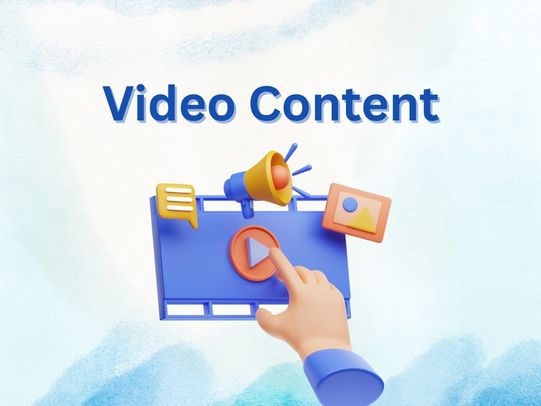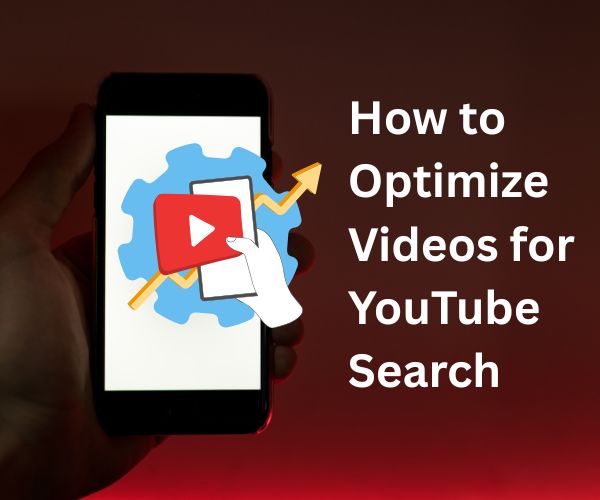Attention is the new currency-and video is how you earn it. Whether it’s a short-form reel on Instagram or an informative tutorial on YouTube, using visual media has become one of the most effective methods to strengthen your digital presence.
Videos don’t just entertain-they educate, build trust, and engage in ways that plain text can’t.
If your business or brand isn’t using video yet, you’re likely being skipped over by your potential audience. In this guide, we’ll cover why video matters, which types work best for visibility, and how to create content that connects and converts.
Why Video Content Matters More Than Ever
1. It Gets People’s Attention
Visual content, especially moving images, naturally captures attention more effectively than text or still photos. Posts with videos tend to receive more clicks, comments, and shares. When people linger longer on your content, it increases your chance of leaving an impression.
2. Helps You Rank Higher
Search engines are built to reward content that keeps users engaged. When you embed videos on your website, people stay longer, and that sends positive signals to search engines like Google. Some videos may even show up in enhanced search listings, giving you greater visibility.
3. Builds a Connection With Your Audience
There’s something powerful about putting a face or voice to a brand. Video allows your viewers to hear your tone, see your body language, and connect with you on a more human level. This sense of authenticity builds trust over time.
4. Encourages More Action
Want your audience to buy a product, sign up for a service, or contact you? Including a video on a landing page can significantly increase the likelihood of that happening. Whether you’re explaining a concept or showing results, visuals can move someone from curiosity to conversion.
Video Types That Help Build Your Brand
Each part of your customer’s journey-from awareness to decision-can be improved with the right video format. Let’s explore some of the most impactful types you can use:
Brand Overview Videos
Let people know who you are, why you started, and what you stand for. These videos offer a snapshot of your identity and values, and they’re great for social media, your homepage, or an “About” section.
Simple Explainers
Trying to introduce a service or product? Create a short video that makes your offer clear and easy to understand. These are especially useful for tech, SaaS, or service-based industries.
Happy Client Stories
Your satisfied customers are your best marketing team. Interview past clients or use clips of them explaining how your product helped solve a problem. Real stories always feel more believable than sales copy.
Behind-the-Scenes Moments
Let your viewers see what goes into what you do. Share footage of your workspace, your team, or a day in your professional life. This transparency fosters trust and relatability.
Educational Content
Create short videos that answer common questions in your industry or solve specific pain points your audience has. You’ll position yourself as a go-to expert without being overly promotional.
Live Video or Recorded Events
Live sessions for product launches, Q&As, or virtual meetups can drive real-time interaction and help you form deeper relationships with your followers.
Also check Personal Branding vs. Business Branding on Social Media: Updated Guide
Where to Share Your Videos for Maximum Impact
Creating a great video is only half the job-getting it seen is just as important. Here’s where your content should live:
YouTube
The go-to platform for video search. Ideal for how-to guides, reviews, and longer tutorials. Helps boost long-term discoverability.
YouTube SEO: How to Optimize Videos for YouTube
Instagram & TikTok
Short clips do well here. If your audience is younger or mobile-first, these platforms are essential for bite-sized storytelling and trending content.
Facebook & LinkedIn
Great for longer engagement and business-oriented audiences. Sharing direct-to-platform (rather than linking to YouTube) tends to increase visibility.
Your Own Website
Place videos on landing pages, blog posts, or service pages. This increases time spent on site and reduces bounce rates.
Email Campaigns
Include a visual preview of your video in emails to improve open and click-through rates. Make sure the linked video is mobile-friendly.
Check out Role of Influencer Marketing in Your SMM Strategy
Tips for Creating Better Video Content
To make the most of your efforts, you’ll want to ensure your videos are not only beautiful-but strategic. Here’s how to keep them effective:
1. Define Your Goal First
Every video should serve a purpose-maybe it’s to educate, convert, or entertain. Know what result you want before hitting “record.”
2. Make the Start Count
The beginning of your video should hook your audience immediately. Ask a question, show a surprising visual, or make a bold statement.
3. Keep Things Tight
Avoid long-winded explanations. Your audience’s attention span is limited, especially on mobile. Say what you need to say quickly and clearly.
4. Use On-Screen Text
Many people scroll through videos silently. Use subtitles or bold text overlays to make sure your message is still delivered, even without sound.
5. Don’t Forget the Next Step
Always close with a clear direction-subscribe, visit your site, leave a comment, or contact you. People are more likely to take action when you guide them.
6. Measure Performance
Track how your video is doing by monitoring viewer retention, likes, shares, and click-throughs. Use tools like YouTube Analytics or Google Search Console to understand what’s working.
Final Thoughts
If you’re serious about standing out online, video isn’t optional-it’s essential. It helps you connect, educate, and inspire your audience in ways that no other format can. Whether you’re building from scratch or enhancing your existing strategy, start focusing on videos that add value, tell your story, and reflect the personality of your brand.
Done right, video content becomes more than just marketing-it becomes your voice in the digital conversation.
Learn Organic vs Paid Social Media: Which One Should You Focus On?


